Filter by
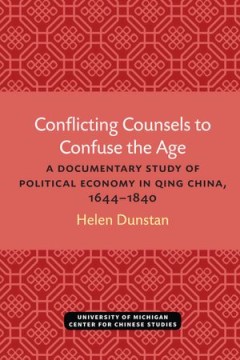
Conflicting Counsels to Confuse the Age: A Documentary Study of Political Eco…
Conflicting Counsels to Confuse the Age translates and analyzes thirty-eight memorials to the throne and other Qing documents dealing with important issues of Chinese political economy, providing thoughtful and provocative commentary. Subjects covered by the texts include water control, mining, grain trade, pawnshops, brewing, and commercial shipping. The documents also contain detailed discuss…
- Edition
- -
- ISBN/ISSN
- 9780472901463
- Collation
- -
- Series Title
- -
- Call Number
- 300
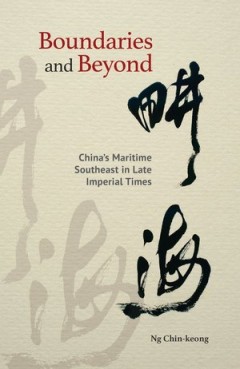
Boundaries and Beyond
Using the concept of boundaries, physical and cultural, to understand the development of China's maritime southeast in late Imperial times, these linked essays by a senior scholar challenge the usual readings of Chinese history from the centre. It looks at the challenges to such demarcations posed by movements of people, goods and ideas across maritime East Asia and the broader Asian Seas, and …
- Edition
- -
- ISBN/ISSN
- 9789814722018
- Collation
- -
- Series Title
- -
- Call Number
- -

Aryan and Non-Aryan in India
The history and mechanisms of the convergence of ancient Aryan and non-Aryan cultures has been a subject of continuing fascination in many fields of Indology. The contributions to Aryan and Non-Aryan in India are the fruit of a conference on that topic held in December 1976 at the University of Michigan, Ann Arbor, under the auspices of the Center for South and Southeast Asian Studies. The expr…
- Edition
- -
- ISBN/ISSN
- 9780472901685
- Collation
- -
- Series Title
- -
- Call Number
- 300

Artisans Appalachia USA
This is the documentation of an Appalachian Consortium traveling exhibition of Appalachian Art produced in the 1970s. The project was supported by a grant from the National Endowment for the Arts in Washington, D.C.
- Edition
- -
- ISBN/ISSN
- -
- Collation
- -
- Series Title
- -
- Call Number
- 300

Art, Research, Philosophy
Art, Research, Philosophy explores the emergent field of artistic research: art produced as a contribution to knowledge. As a new subject, it raises several questions: What is art-as-research? Don’t the requirements of research amount to an imposition on the artistic process that dilutes the power of art? How can something subjective become objective? What is the relationship between art and …
- Edition
- -
- ISBN/ISSN
- 131765482X, 9781317654827
- Collation
- -
- Series Title
- -
- Call Number
- 300

Protest Movements in Asylum and Deportation
Protest mobilization and outcome; Political participation; Emotions and social ties; Deportation nation; Refugees; Pro-migrant protest; Anti-migrant protest
- Edition
- -
- ISBN/ISSN
- 9783319746951
- Collation
- -
- Series Title
- -
- Call Number
- 320.17 MER p
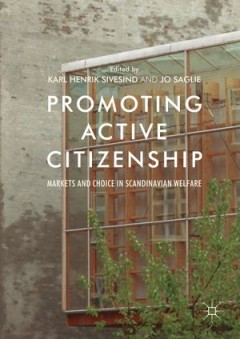
Promoting Active Citizenship: Markets and Choice in Scandinavian Welfare
employment; social policy; care; decentralization; service users; vouchers; welfare reform
- Edition
- -
- ISBN/ISSN
- 9783319553801
- Collation
- -
- Series Title
- -
- Call Number
- 302.2 SIV p
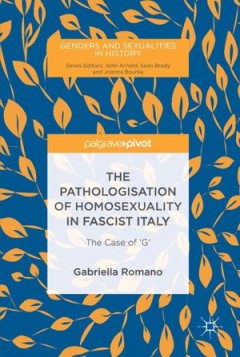
The Pathologisation of Homosexuality in Fascist Italy
This open access book investigates the pathologisation of homosexuality during the fascist regime in Italy through an analysis of the case of G., a man with "homosexual tendencies" interned in the Collegno mental health hospital in 1928. No systematic study exists on the possibility that Fascism used internment in an asylum as a tool of repression for LGBT people, as an alternative to confineme…
- Edition
- -
- ISBN/ISSN
- 9783030009939
- Collation
- -
- Series Title
- -
- Call Number
- 306.8 ROM p
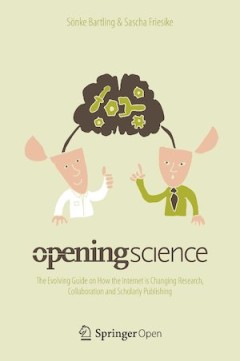
Opening Science: The Evolving Guide on How the Internet is Changing Research,…
Modern information and communication technologies, together with a cultural upheaval within the research community, have profoundly changed research in nearly every aspect. Ranging from sharing and discussing ideas in social networks for scientists to new collaborative environments and novel publication formats, knowledge creation and dissemination as we know it is experiencing a vigorous shift…
- Edition
- -
- ISBN/ISSN
- 9783319000268
- Collation
- -
- Series Title
- -
- Call Number
- 301 BAR o
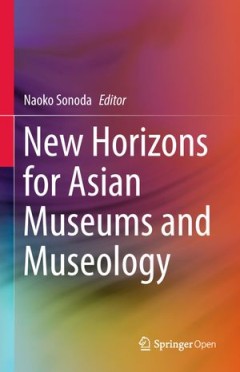
New Horizons for Asian Museums and Museology
Cultural Heritage; Achaeology
- Edition
- -
- ISBN/ISSN
- 9789811008856
- Collation
- -
- Series Title
- -
- Call Number
- 301 SON m
 Computer Science, Information & General Works
Computer Science, Information & General Works  Philosophy & Psychology
Philosophy & Psychology  Religion
Religion  Social Sciences
Social Sciences  Language
Language  Pure Science
Pure Science  Applied Sciences
Applied Sciences  Art & Recreation
Art & Recreation  Literature
Literature  History & Geography
History & Geography